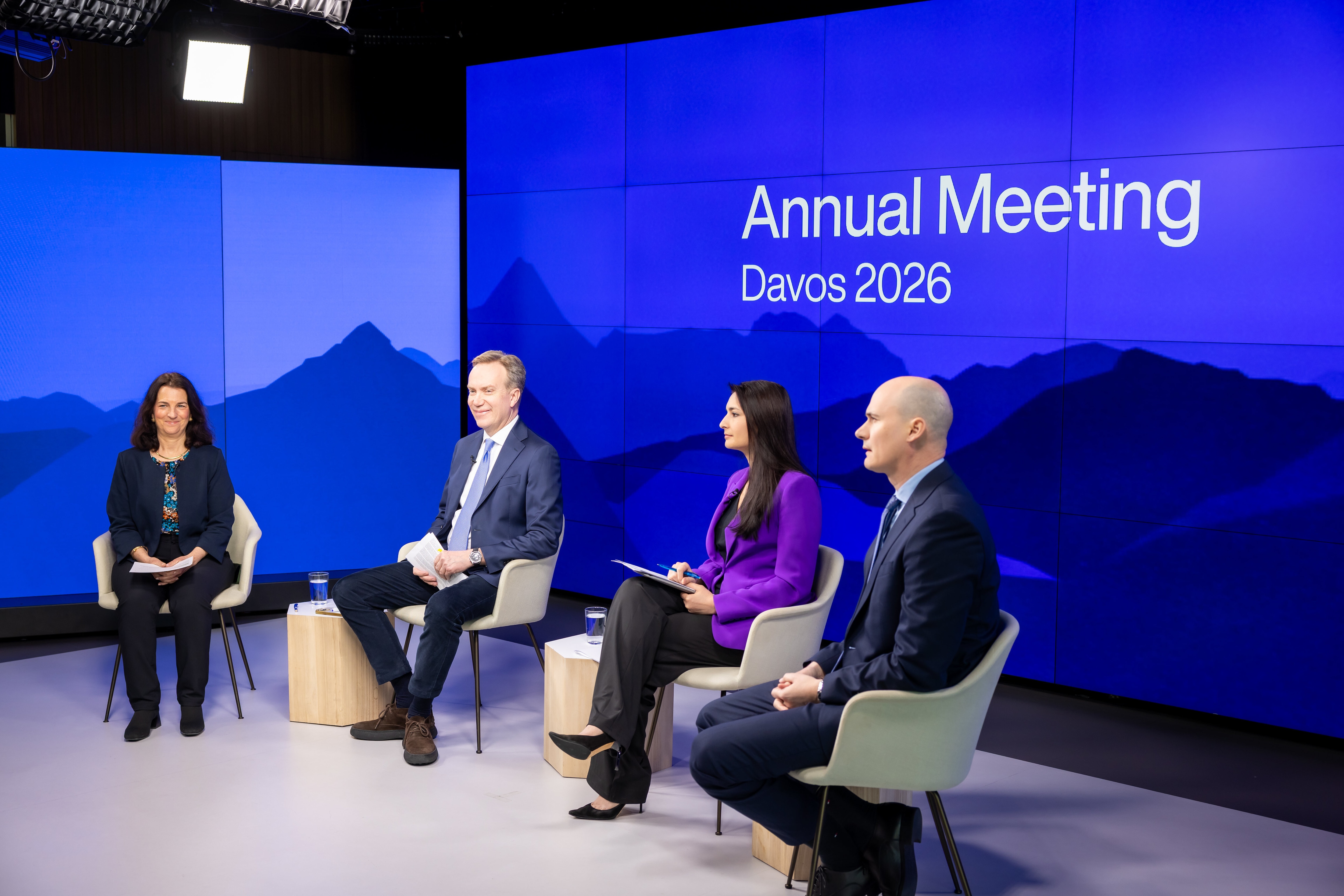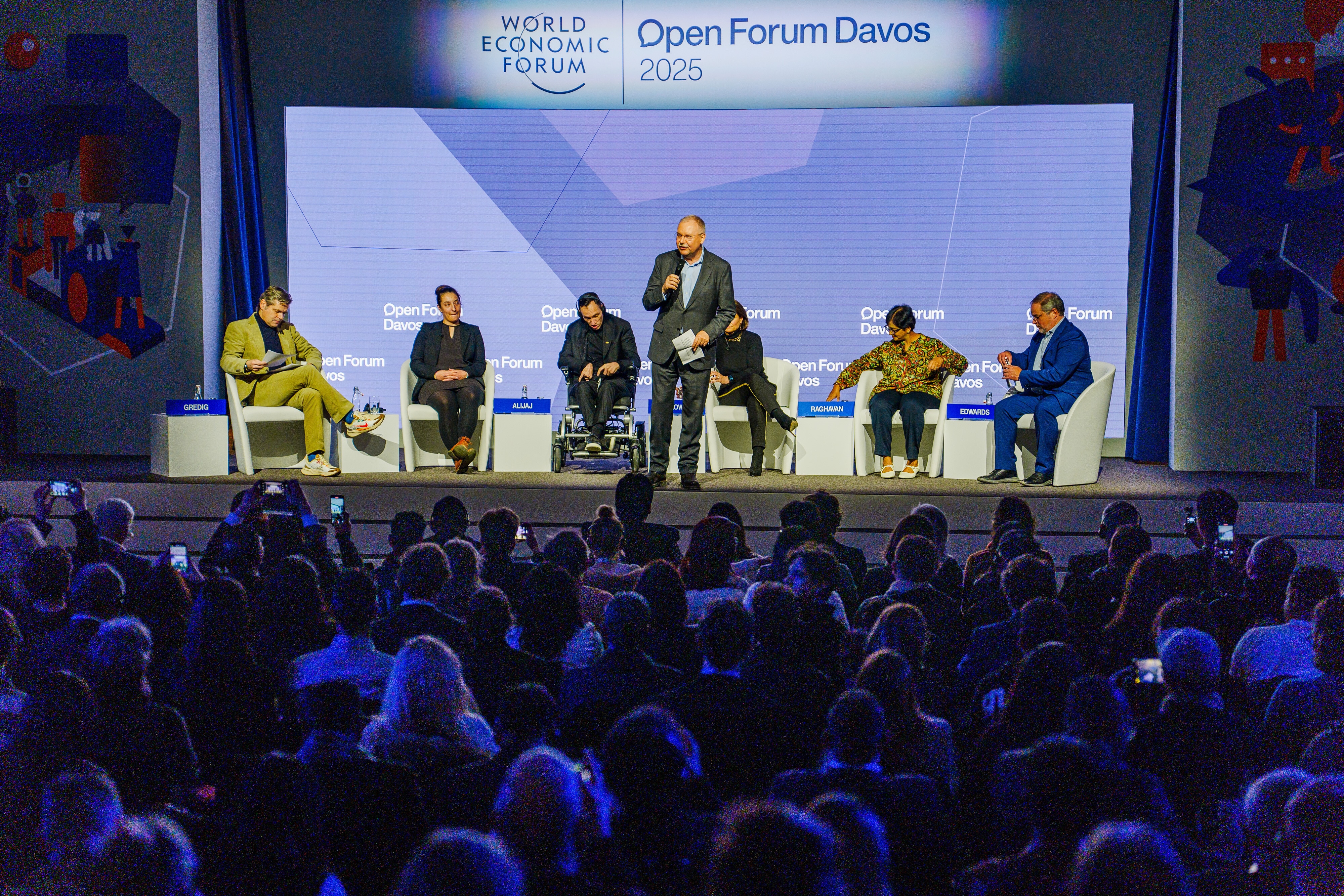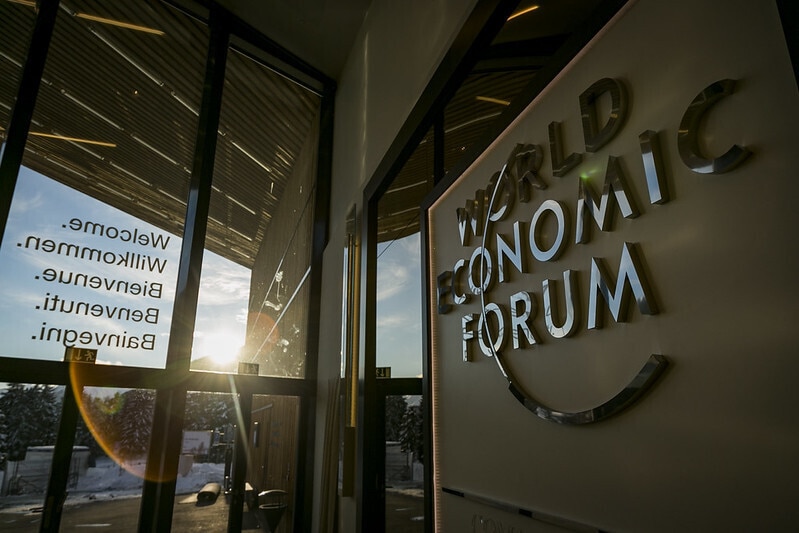What changes in global and regional cooperation will 2021 bring? Here’s what business leaders say

One of the biggest logistical challenges of our lifetime: to distribute and drive uptake of COVID-19 vaccines. Image: REUTERS/Marko Djurica
For geopolitics, 2020 has been a year of paradoxes. The rapid spread of the virus exposed just how interconnected and globalized the world is, as countries grappled with the common experience of a new disease. There was even a sense of global community – as health workers were praised around the world with a nightly clap and tech-enabled global concerts took place, such as One World: Together at Home.
Have you read?
What changes to environmental stewardship will 2021 bring? Here’s what business leaders say
What changes to industry and society will 2021 bring? Here’s what business leaders say
What technology changes will 2021 bring? Here's what business leaders say
What changes to economic systems will 2021 bring? Here’s what business leaders say
But the battle to contain the spread led to the shutting of borders and the prioritization of self-sufficiency. The pandemic has widened political and social divisions, while throwing economies into disarray, requiring national responses that have sometimes been at odds with the global purpose.
The World Economic Forum Global Risks Report 2021, reveals how the crisis has challenged national policy-making and international relations in ways that threaten lasting impacts. Institutions and policies to support international coordination were already in decline, and responses to the pandemic have caused new geopolitical tensions. “With new stalemates and flashpoints in view, GRPS respondents rated ‘state collapse’ and ‘multilateralism collapse’ as critical threats over the next five to ten years.”

The deployment of COVID-19 vaccines brings hope, but the cracks of an unsettled world remain. Børge Brende, President, World Economic Forum, says, “Indeed, while many of the vaccines are proving miraculous in their efficacy, they risk exacerbating pre-existing geopolitical frictions and fault lines. Already, vaccines have been compared to military assets in their ability to strengthen a country’s power and influence, and there is concern that global inequities will grow ever more pronounced as developing economies are not part of the first round of vaccine distribution and are fiscally constrained in how they can respond to economic crises.”
The Davos Agenda is mobilizing global leaders to work together virtually to tackle these challenges and to work together to achieve a more cohesive global future as soon as possible. An entire week of programming is dedicated to helping leaders choose innovative and bold solutions to stem the pandemic and drive a robust recovery over the next year – with Day 5 (28 January) focused on how to move from geopolitics and international competition to a default of consummate global collaboration.
Ahead of the meeting, we invited World Economic Forum Strategic Partners to share their ideas on how nations can focus on dialogue, coordination and collective action.
‘A Marshall Plan for business’
Alain Bejjani, Chief Executive Officer, Majid Al Futtaim
It is my belief that we must face a global problem with a global response, where companies combine their resources for the greater good – think of it as the Marshall Plan for business, only several multiples larger.
We are all joined together by our humanity, by our need for reassurance, security and our desire for positivity. But the advance of stakeholder capitalism is not a foregone conclusion; while 2020 has shaken the kaleidoscope, the old ways of looking at business could easily creep back in.
Have you read?
No one can say with certainty how the next chapter in the battle against COVID-19 will unfold; less so what its lasting legacy will be. However, I absolutely believe that the choices we make today will redefine the face of capitalism for generations to come. Let’s ensure those choices remain the right ones.
‘New collaborations on climate, pandemics and social justice’
Audrey Choi, Chief Executive Officer, Institute for Sustainable Investing; Chief Sustainability Officer; Chief Marketing Officer, Morgan Stanley
The good news is that sustainable investing has come of age to help support systemic innovations. Consumers and investors alike are increasingly focusing on sustainability. Sustainable investing – once regarded as a niche – is now fully mainstream, accounting for $1 out of every $3 under professional management, or $30 trillion globally. More strikingly, in 2019 and 2020, sustainable investing has outperformed traditional investing, delivering both higher returns and lower downside volatility throughout the bull markets, bear markets, and extraordinarily volatile markets alike.
Have you read?
And so, even as we struggle to address the convergent crises of 2020, this may be a unique opportunity to forge new collaborations focusing on climate, pandemics and social justice together and holistically. This may be the time to view the world not through isolated microscopes; but rather, through a 360-degree lens, so we can drive for systemic solutions.
‘Everyone has a part to play’
Dimitri de Vreeze, Co-Chief Executive Officer and Chief Operating Officer, Royal DSM

The pandemic has highlighted how interconnected today’s world truly is and the interdependence of humanity with the world around us. There is a lesson in this crisis; it is showing us how inadequate our current systems are in tackling global challenges such as climate change, how we produce food and how we use resources without stretching the limits of our planet.
These issues do not stop at country borders so we must work together. Everyone has a part to play. The actions we take this year will determine our future and that of generations to come. We have a once-in a-lifetime opportunity to change, to build back better and shape a more sustainable, fair and resilient future.
‘Respond effectively, creatively and collaboratively’
Carolina Klint, Managing Director, Marsh
More collaboration across society – the public and private sectors, communities, and NGOs – is essential. It will involve developing stimulus programs that incentivize sustainable recovery efforts that include green infrastructure and clean energy projects. It will require partnerships between the public and private sectors to upskill workers for an exploding digital economy. And it ought to necessitate the creation of new pandemic and emerging risk insurance mechanisms that could help stabilize companies during extended crisis events.
To build and maintain resilience, it is important that business keeps an eye on potentially high impact events in the short-term and on the longer-term landscape. And then be prepared to respond effectively, creatively and collaboratively. This is vital for businesses and the global community to sustainably navigate the risks and opportunities ahead, strengthen their resilience to future shocks and progress towards long-term prosperity.
'Strength, partnerships, shared economic prosperity, and deep humility'
David McCormick, CEO, Bridgewater
It will not be enough for the world simply to recover from the pandemic. Well before its outbreak, countries around the world wrestled with polarization, political strife, and inequality, and in the United States, we faced heightening international rivalries and deeply rooted domestic challenges that, for all our strengths, challenged American leadership.
As we recover from the economic and social devastation of Covid-19, it is vital that all nations take steps to promote greater global stability and tend to the freedom and well-being of their citizens.
And in America, we must continue our tradition as the source of innovation and global leadership by renewing our institutions, strengthening our global alliances, and restoring faith in the country’s direction. We must revive and uphold the values that make America exceptional and a beacon for others, while committing to peace through strength, partnerships, shared economic prosperity, and deep humility. This is a duty for all Americans: to forge a better future together, hand-in-hand with our global allies.
‘Boldness and bridge-building’
Rich Lesser, Global Chief Executive Officer, Boston Consulting Group (BCG)

In 2021 I am hoping to see three things at the intersection of business and society:
1) Businesses join forces with governments around the world to execute on one of the biggest logistical challenges of our lifetime to distribute and drive uptake of COVID-19 vaccines, starting with those most in need.
2) Many more companies realize they can do more to accelerate sustainability in their businesses and to tackle the urgent climate change agenda.
3) I hope 2021 proves to be a year of boldness and bridge-building as we work to solve our most challenging issues, certainly in the United States, but also around the world.
‘Our collective wellbeing is intertwined’
Tara Nathan, Executive Vice-President, Public-Private Partnerships, Mastercard
Global leaders are currently navigating the very real challenges of equitably distributing vaccinations and therapeutics across the world. The prioritization, provision and tracking of inoculations has already met hurdles in the US, with states not receiving their expected doses, and leaders struggling to figure out a fair process to determine eligibility and distribute accordingly. Imagine trying to accomplish this globally when 1 billion people lack a formal identity and 3.4 billion people can’t get access to basic services.
Have you read?
This global pandemic has irrefutably demonstrated that our collective wellbeing is intertwined, and that the needs and challenges of every country around the world must be addressed, if we are to curb the spread. But this is just one urgent need. We must think long-term and build efficient and scalable systems and processes that ensure sustained service delivery to those impacted by crises. Achieving that goal requires the deployment of digital tools in a way that improves lives and livelihoods without compromising privacy.
Find out more about World Economic Forum partners here.
License and Republishing
World Economic Forum articles may be republished in accordance with the Creative Commons Attribution-NonCommercial-NoDerivatives 4.0 International Public License, and in accordance with our Terms of Use.
The views expressed in this article are those of the author alone and not the World Economic Forum.
Related topics:
Contents
‘A Marshall Plan for business’‘New collaborations on climate, pandemics and social justice’‘Everyone has a part to play’‘Respond effectively, creatively and collaboratively’ 'Strength, partnerships, shared economic prosperity, and deep humility'‘Boldness and bridge-building’ ‘Our collective wellbeing is intertwined’Forum Stories newsletter
Bringing you weekly curated insights and analysis on the global issues that matter.





